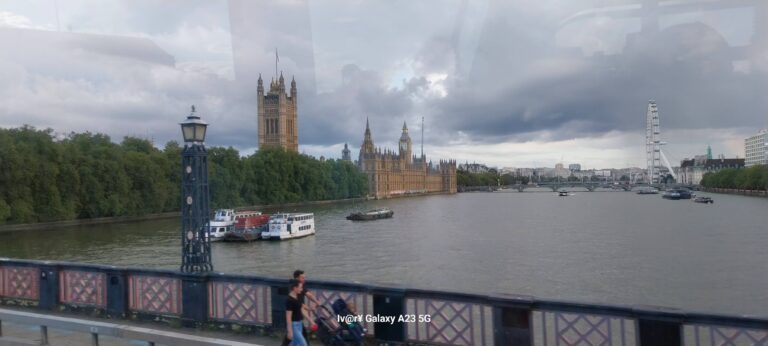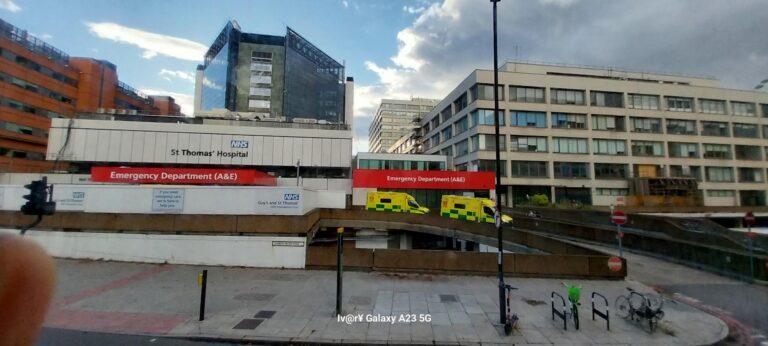STUDY IN UNITED KINGDOM
Why study in United Kingdom ?




Studying in the United Kingdom is often regarded as an enriching and life-changing experience. Explore the advantages of studying in the UK as an international student, from world-renowned universities and diverse academic programs to a vibrant cultural experience. Learn about the application process and gain valuable tips to help you succeed in your academic journey.
Obtain world-class education: The United Kingdom (UK) is the confederation of England, Scotland, Wales, and Northern Ireland in North-Western Europe. With a strong economy and a reputation for being a major financial center, the UK is home to cities like Manchester, Edinburgh, and London, each of which offers a unique blend of modern development and historical significance.
Top-tier universities in the UK are well-known for offering a variety of programs and opportunities for cutting-edge research. Due to its well-known international standing and vibrant multicultural setting, it is a well-liked option for overseas students seeking an excellent education.
The UK provides a global atmosphere that encourages a range of perspectives and networking possibilities because of its diverse student body. Since many UK programs last only one year for master’s degrees and three years for undergraduate degrees. Check the Cost of studying in the UK.
Select University & Course: You must have an unconditional offer of a place on a course with a licensed student sponsor.
Pay Course Fee: You need enough money to pay for your course fee for 1 academic year (up to 9 months). How much to pay will be mentioned on your Offer Letter. International students can expect the course fee between £10,000 to £19,000+ annually.
Money you need to support yourself and pay for your course: The amount will vary depending on your circumstances.
Apply for CAS: Once you have paid the required fees, the university will offer you a place on the course. Your education provider will send you a reference number called a Confirmation of Acceptance for Studies (CAS).
Apply for Visa: Submit your application, provide your supporting documents in the required format, and pay the required Visa Application fee. You must apply for your visa within 6 months of receiving your CAS.
Have your fingerprints and photo (Bio metric information) taken at a visa application center.
How long it takes to get a decision: You’ll usually get a decision within 3 weeks. You may be able to pay to get a faster decision.
When you can travel to the UK: You can travel one month before your course starts if your course lasts more than 6 months.

1 – How much is the Student Visa Application fee: The current UK student visa application fee is £524, paid as an equivalent in your local or alternative currency. ( Priority service: £500 & Super priority service: £1,000 ) Click the link for updated fee:- Home Office immigration and nationality Visa fees: Effective 9th April 2025
2 – Money you need to support your visa application (financial requirement): You’ll need to show you have enough money to support yourself. However, you might be asked to provide this evidence before you apply for CAS and get a decision on your application.
Financial requirement for students – Effective after 11th November 2025: £1,529 per month (for up to 9 months) for courses in London (Total £13,761 ) or for courses outside London (Total £10,539 @ ( £1,171 per month – for up to 9 months)
3 – How much you have to pay the Immigration Health Surcharge (IHS): The immigration health surcharge (IHS) is a fee that gives you access to the National Health Service (NHS) in the UK. Applications for visas that are more than six months long include an immigration health surcharge, charged at £776 per year of your visa. The cost is based on the length of immigration permission you are applying for. Download in PDF -> How much is the UK Student Visa fee & Immigration Health Surcharge (IHS)
Additional charges if applicable:
- If your visa includes six months or less, you will be charged an additional 50% of the annual charge.
- If your visa includes more than six months, you will have to pay the full annual charge.
Example: A 12-month master’s course would be charged at £1,164 for the immigration health surcharge (12 months plus 5 additional months granted (£776 +388 = £1164)
4 – Part-Time Work: Student visas allow part-time work (20 hours/week during term time) and full-time work during holidays and vacations, helping students support their finances while studying. The national minimum wage is: £8.60 per hour (for students aged 18-20) and £11.44 per hour (for students aged 21 and over) Many universities offer employment opportunities for students. NOTE: Students must check the guidance and working restrictions on the GOV.UK website.
5 – Post-Study Work (PSW) Visa: Officially known as the Graduate Route Visa, students may switch depending on their eligibility. Eligibility Timeline: You must apply before your current Tier 4 (Student) visa expires.
On 12 May 2025, the UK Government published an “immigration white paper” titled, ‘Restoring Control over the Immigration System’.But Has the Graduate route changed?
Not yet. As we have mentioned previously, a white paper does not and cannot change law. For the Graduate route to change, it would require a Statement of Changes to the Immigration Rules. A Statement of Changes will detail how the law will change and what those changes mean. This has not yet happened and we will alert you when it does.
For now, the Graduate route remains unaffected and available for eligible graduates for 2 years of permission (3 years of permission for PhD or other doctoral qualification graduates). For details on the Graduate route, please see our Graduate route webpage. We will update our website, and let you know, if and when a Statement of Changes is released that affects the Graduate route. Stay up to date with any changes by signing up to our newsletters here: ukcisa.org.uk/newsletter
6 – Living Costs: Students can carry cash, but almost all places in the UK accept card payments. Large expenses (e.g., tuition fees, accommodation) should be paid via bank transfer. More budgeting advice is available on the Study in UK website.
7 – How Long You Can Stay: If you are 18 or older and studying a degree-level course in the UK, you can typically stay for up to 5 years. For courses below degree level, the limit is 2 years. Read the guidance of Graduate visa for details.
8 – All Other Important Information: Studying in the UK has produced fantastic results. Check the guide on ‘Why the UK is the best choice for Indian students’.
9 – Obtain a Qualification: UK degrees are internationally recognized. Employers and academics worldwide value UK education qualifications.
10 – Get Ready for Your Ideal Career: A UK degree enhances your resume and earning potential. Employers increasingly seek graduates with multicultural experience. Many UK universities collaborate with industries, offering students real-world experience through placements or a year in industry.
11 – On Course Completion: The UK government allows international students on a Tier 4 visa to apply for a 2-year work visa upon graduation. PhD or doctoral students can extend for 3 years. In most cases, students may be eligible for PR after holding a work visa for 5 years.
Download the guide here for more advice.
12 – Currency Converter: Currency Converter to INR
13 – Study Applications Fee Outside the UK and Money to support your Visa Application
